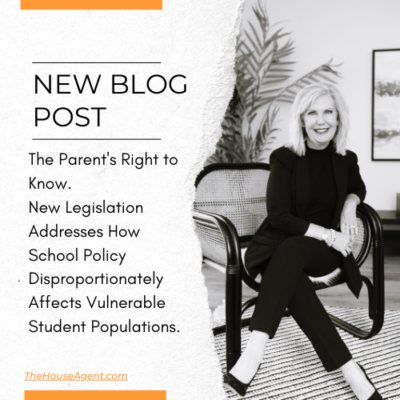 Public Schools, Parents, and Legislation in California
Public Schools, Parents, and Legislation in California
The relationship between public schools and parents has become a topic of considerable debate in the ever-evolving education landscape. Parents rightly question why schools feel they have the authority to withhold information about their children. After all, it’s a fundamental belief that children do not belong to the school; they belong to the parents. This blog post will explore this issue and delve into current legislation. A new Bill, SB 274, calls out how school suspension disproportionately affects students of color, LGBTQ students, those experiencing homelessness or in foster care, and those with disabilities.
The Parent’s Right to Know:
A crucial aspect of this debate centers on a parent’s right to be informed. Just as parents have a right to know if their child has a learning disability or is experiencing bullying at school, they should also be aware of how their child identifies while at school. Transparency in this matter not only fosters trust between schools and parents but also ensures the safety and well-being of the child.
Legislation in Focus: SB 274
One current legislative effort in California is Senate Bill 274, championed by Sen. Skinner. This bill seeks to prevent the suspension of students for low-level behavior issues termed as “willful defiance” in California’s public schools from TK through 12th grade. Historically, these suspensions have disproportionately affected students of color, LGBTQ students, those experiencing homelessness or in foster care, and those with disabilities.
Addressing Discrepancies:
Here lies an apparent discrepancy: on one hand, the State of California aims to protect children from potential harm within their families by withholding certain information from parents. On the other hand, schools have not acted independently to protect vulnerable student populations when they know they are disproportionately affected by the school’s actions. This begs the question: why the apparent double standard?
The Need for Consistency:
It is essential to bridge this gap and establish a consistent approach to safeguarding the rights and well-being of all students. While there may be valid concerns about abuse within families, it is equally critical to acknowledge that schools are not infallible. The disproportionate suspension rates for marginalized students highlight the need for a comprehensive approach to child protection.
Conclusion:
In pursuing a harmonious relationship between public schools and parents, we must advocate for open communication, transparency, and mutual respect. Legislation like SB 274 is a crucial step toward rectifying imbalances within the educational system. By addressing the concerns of parents and schools alike, we can forge a path toward a safer and more inclusive learning environment for all students. Together, we can create a future where every child receives the support and protection they deserve.

